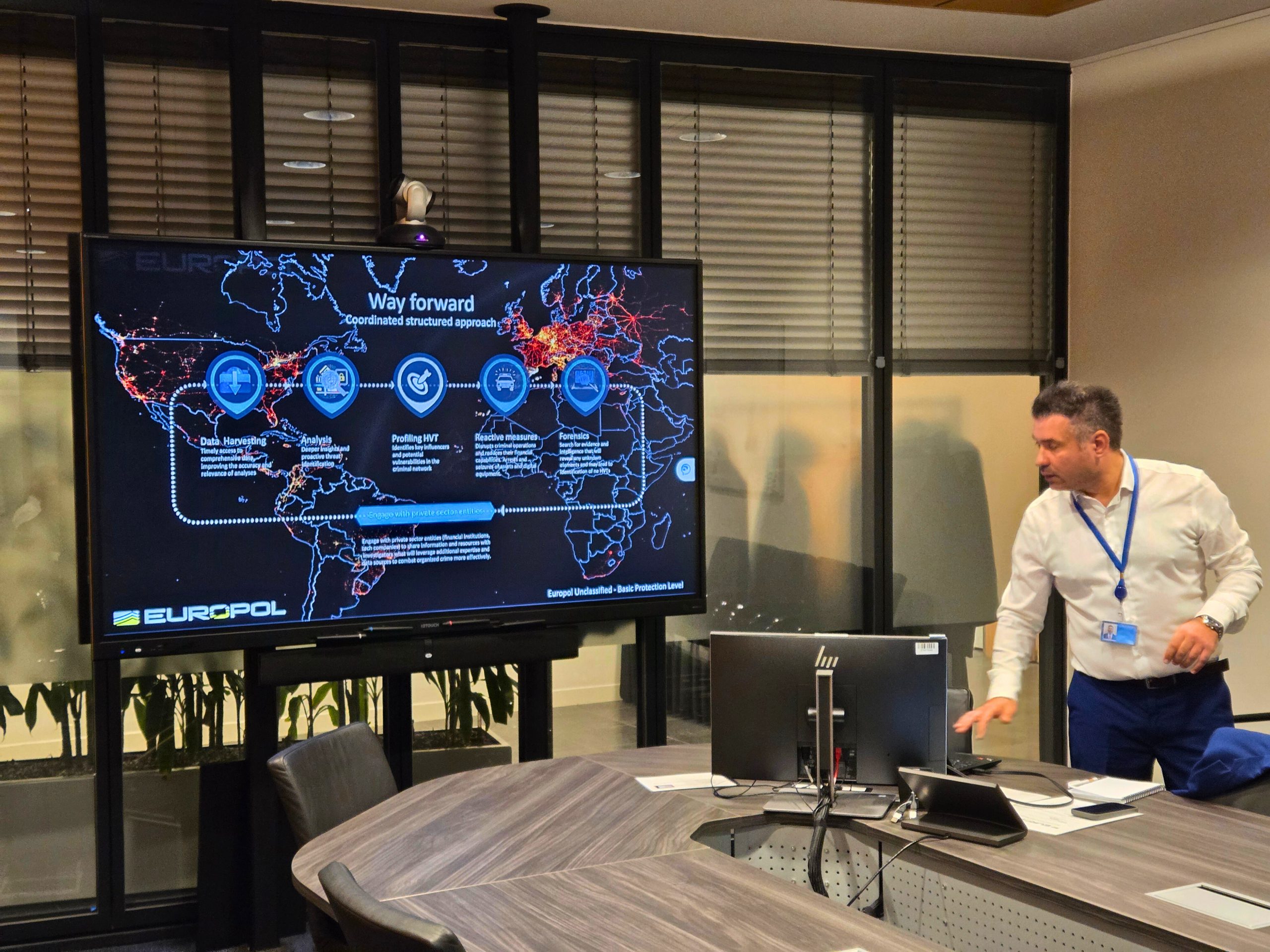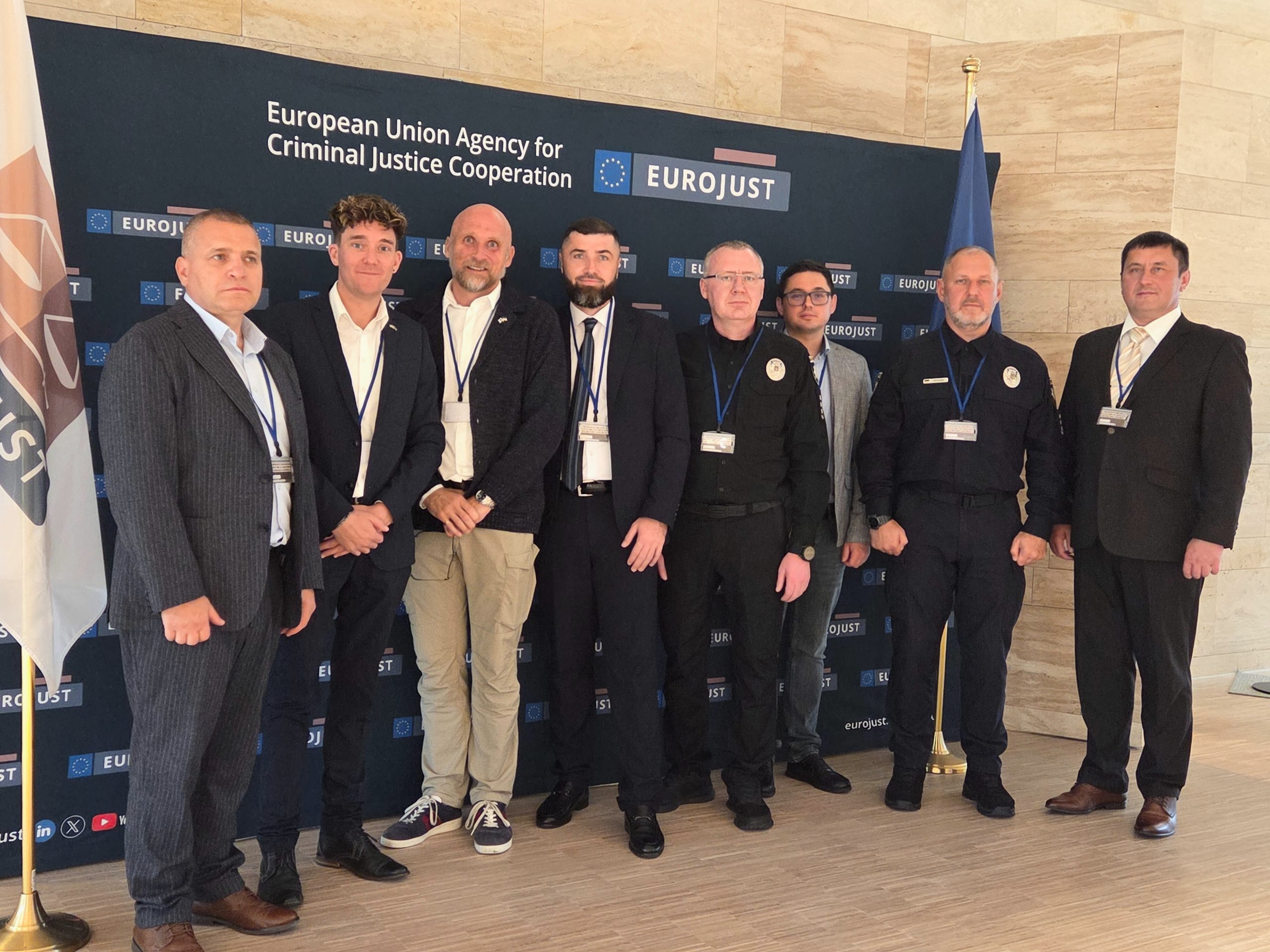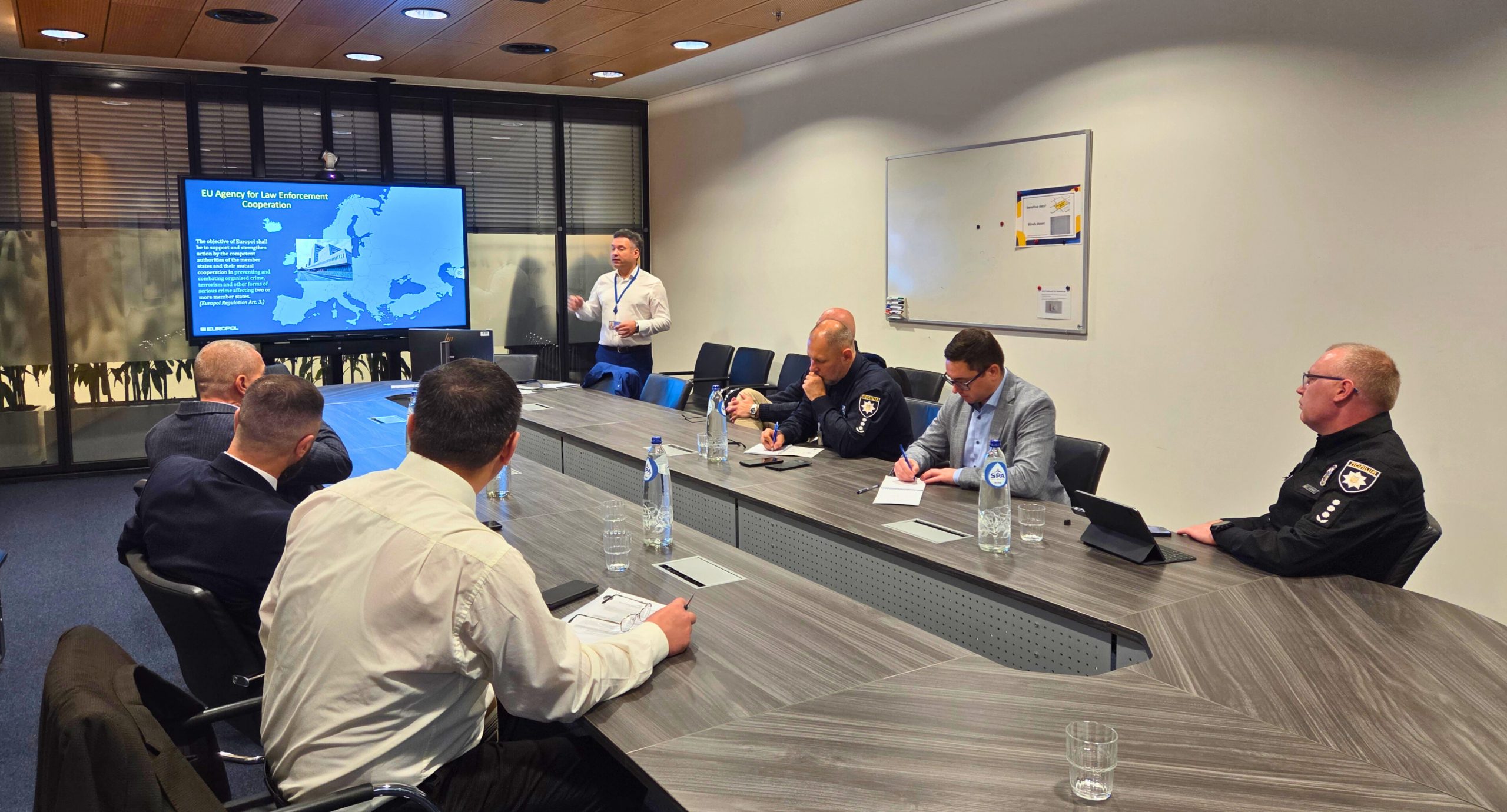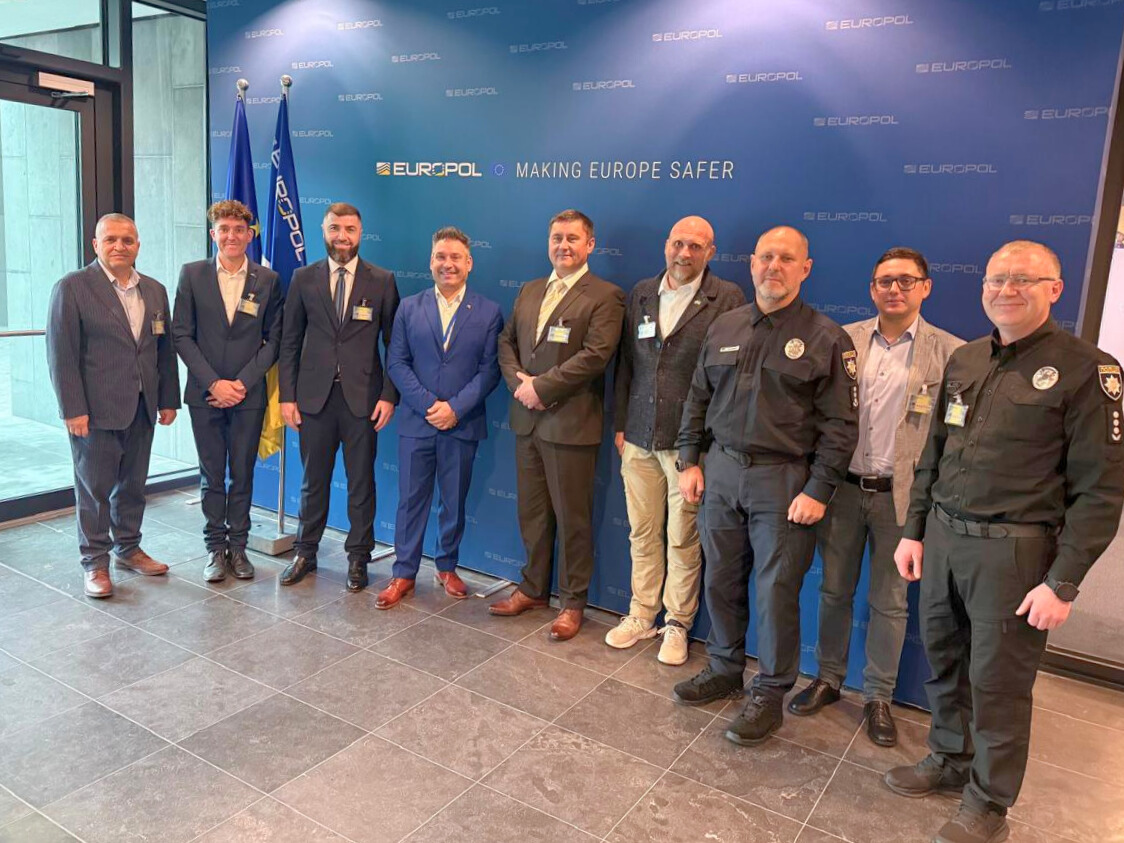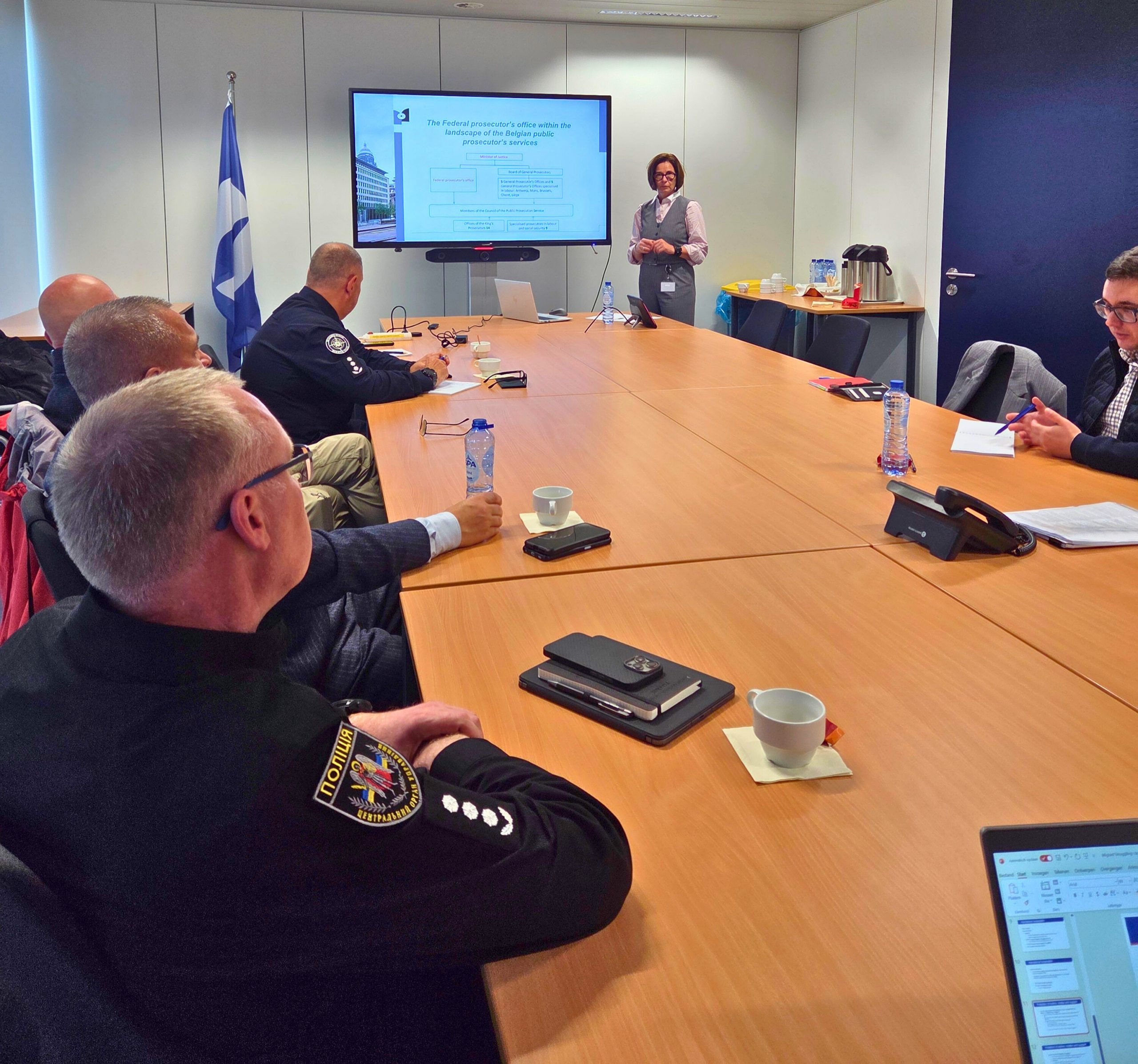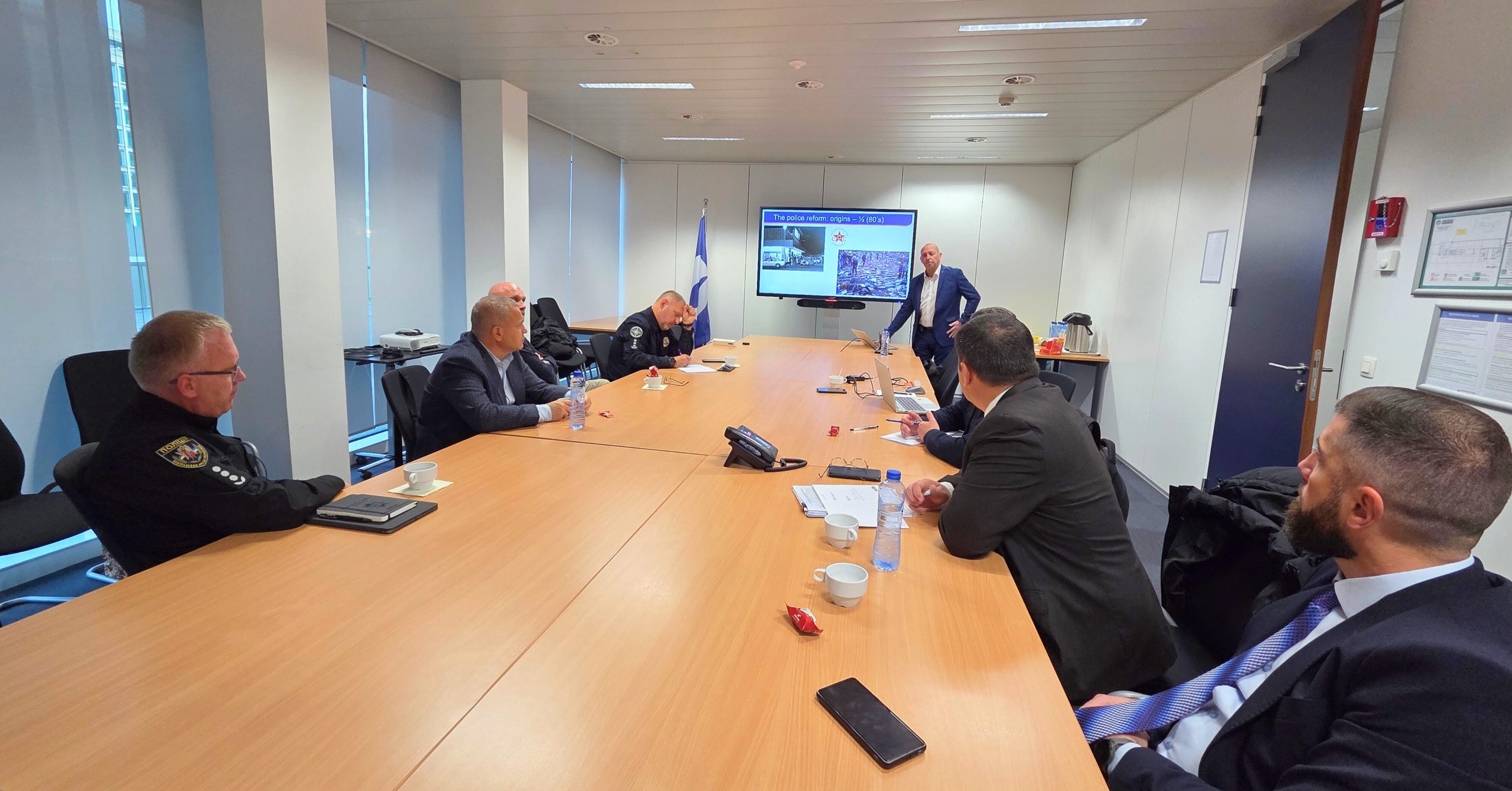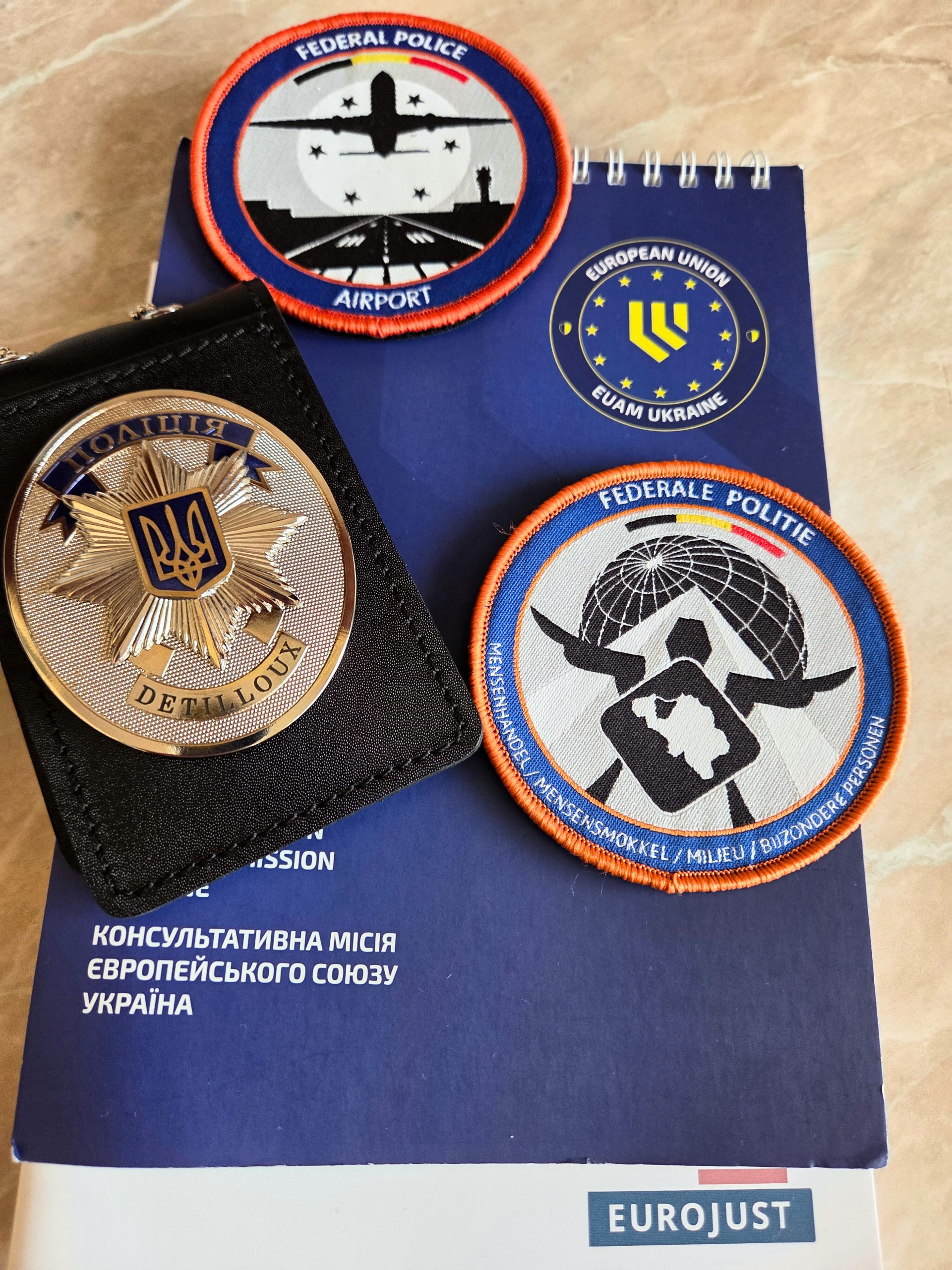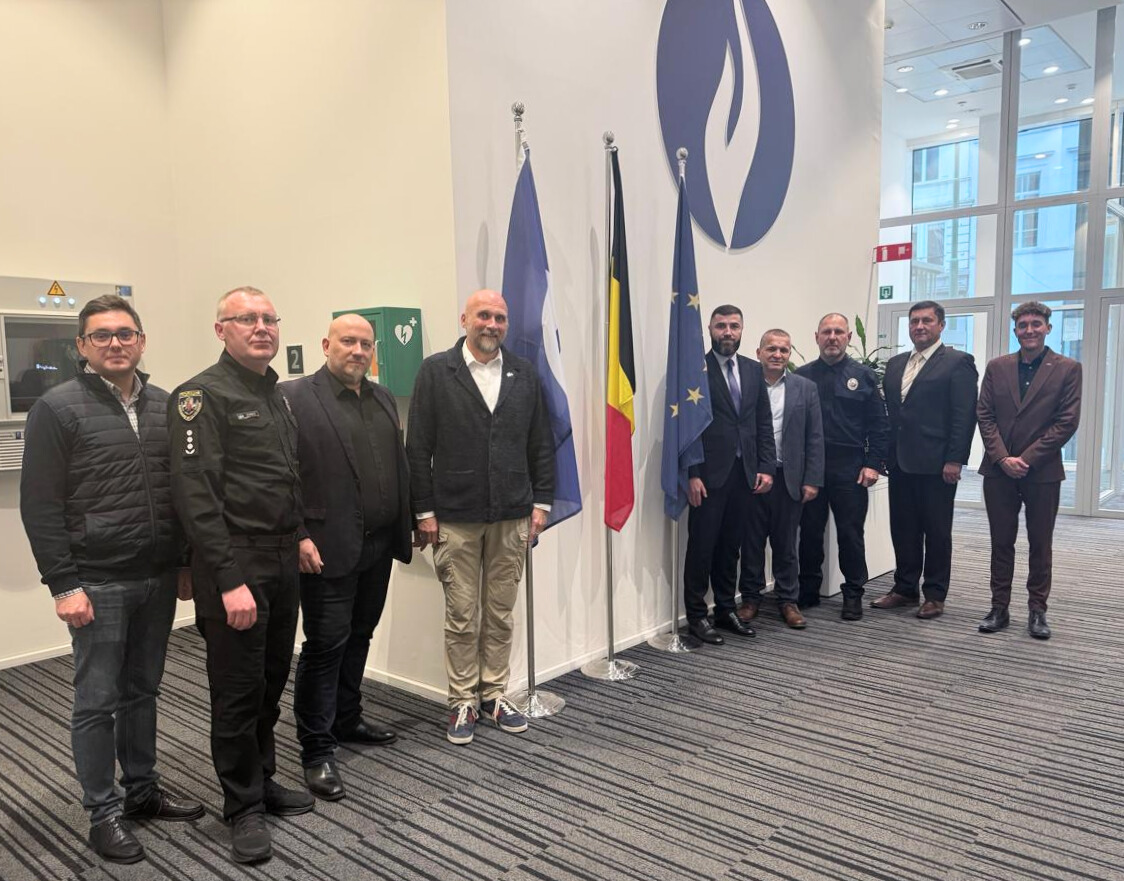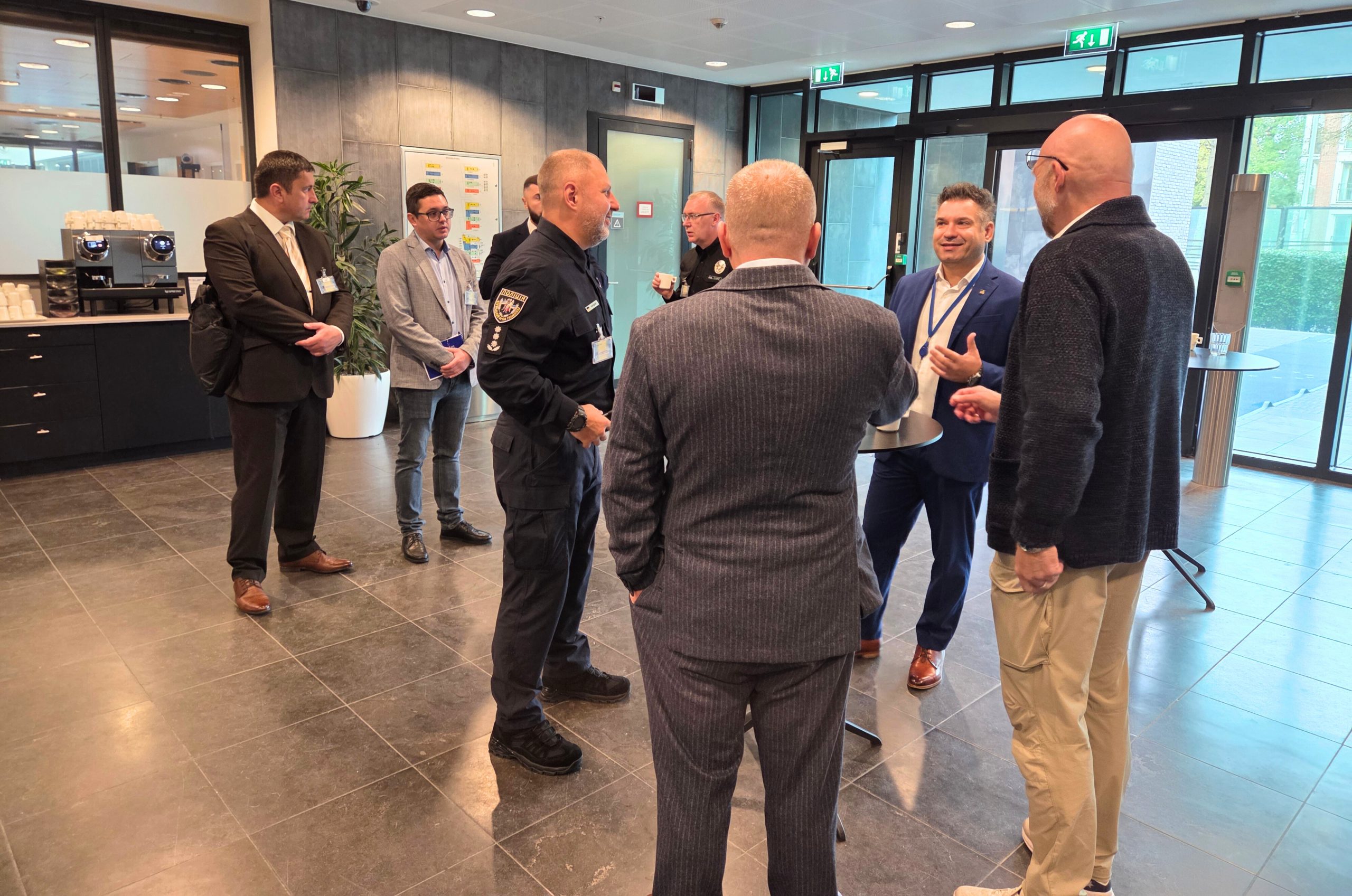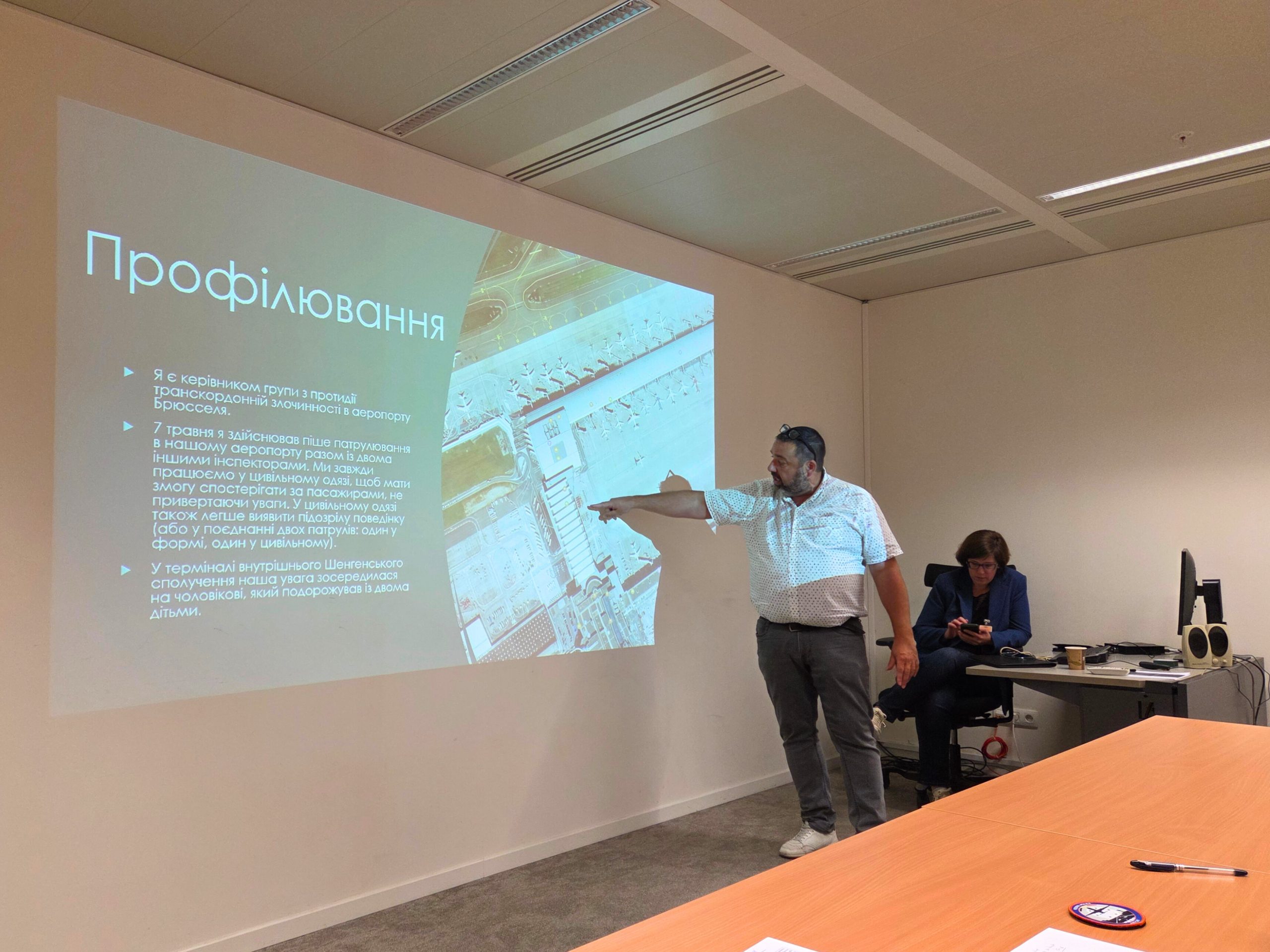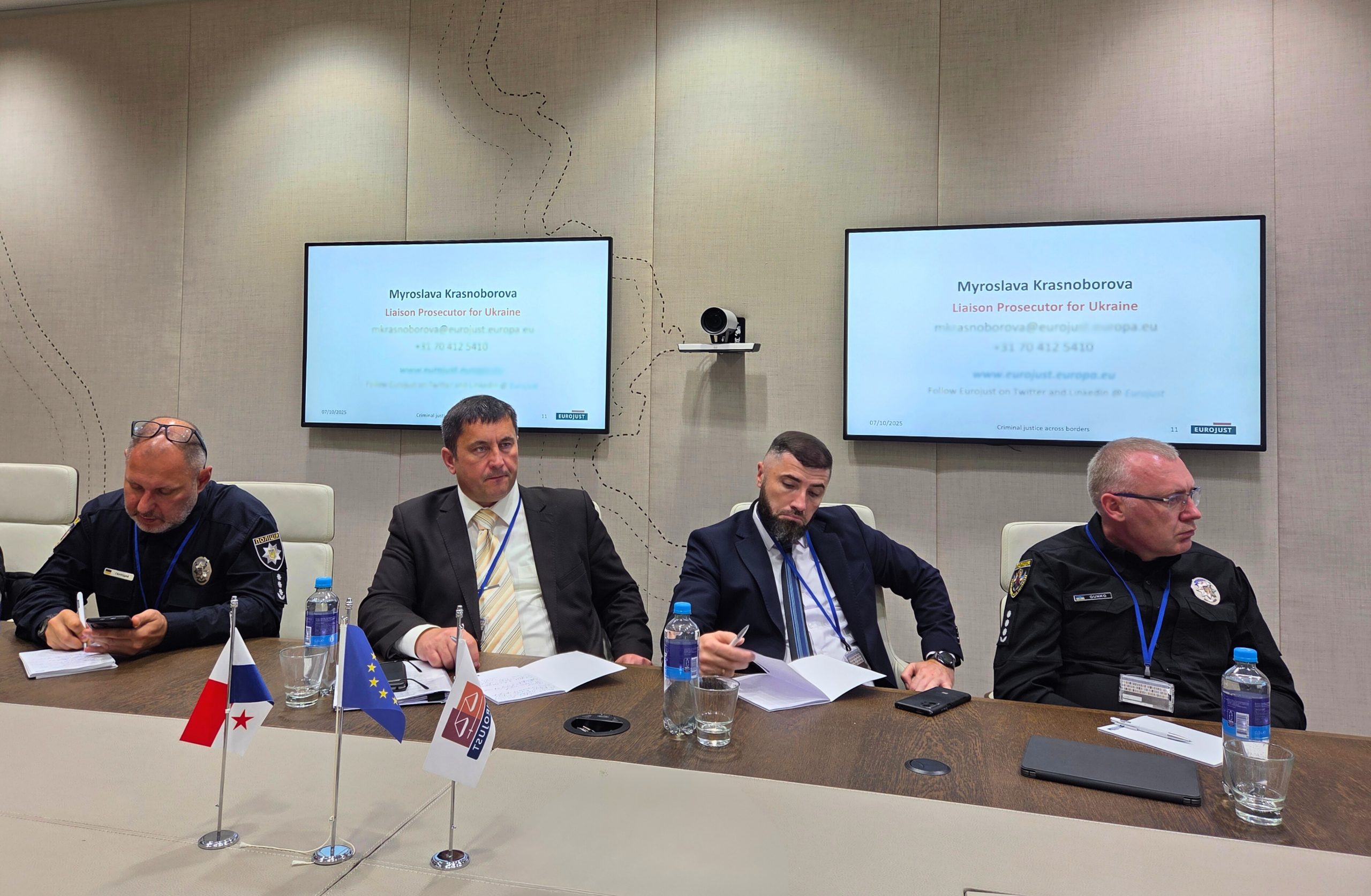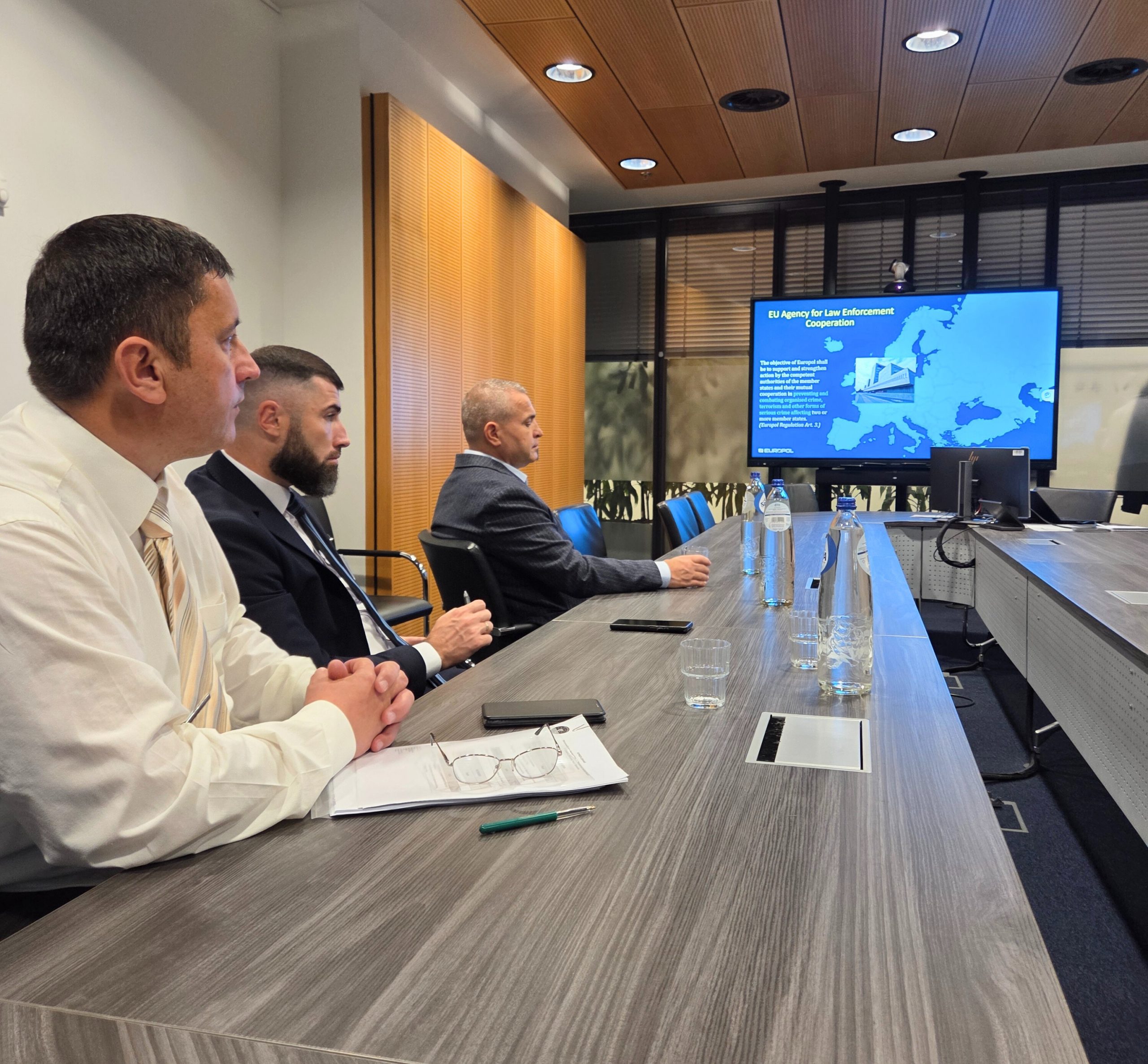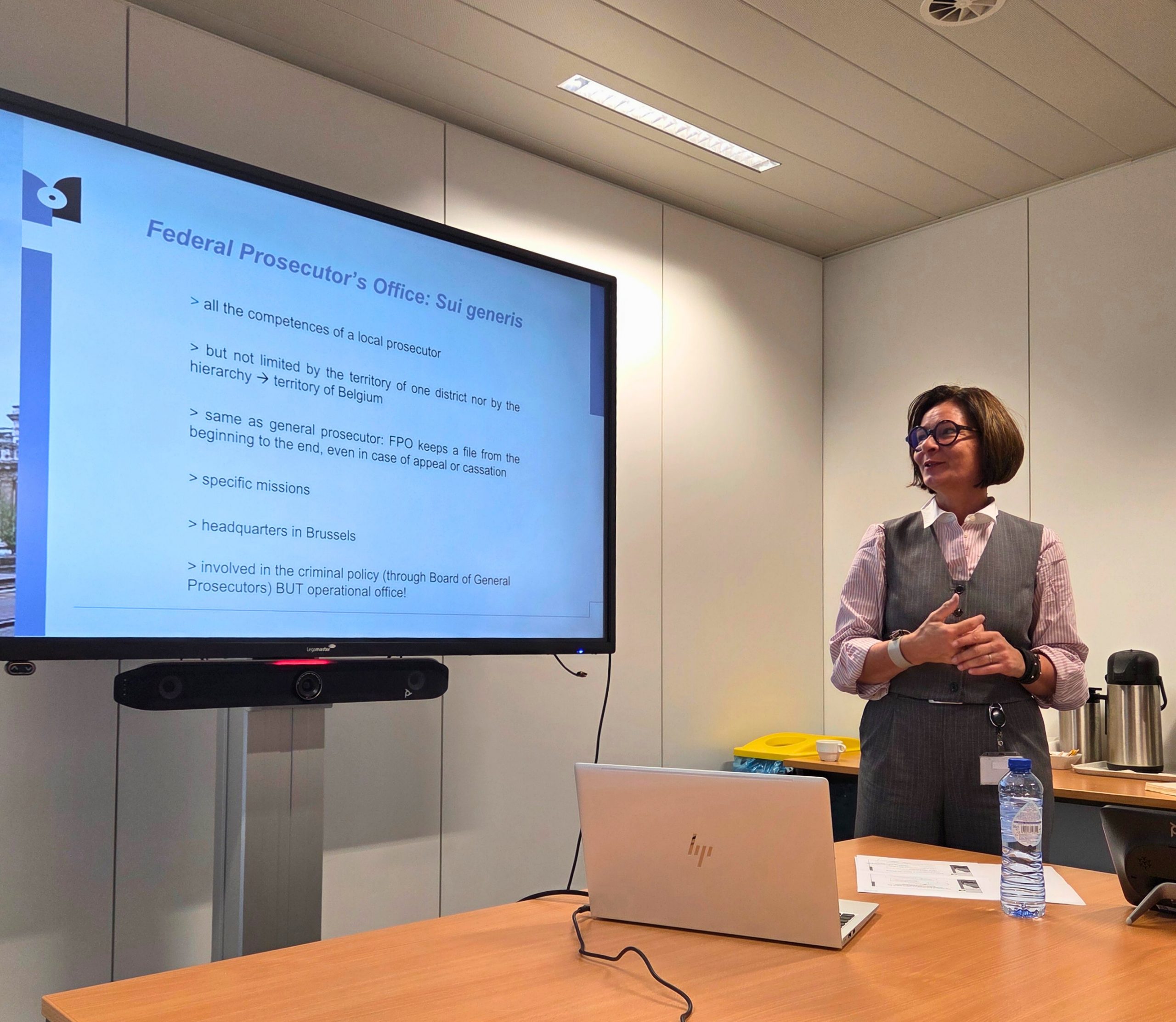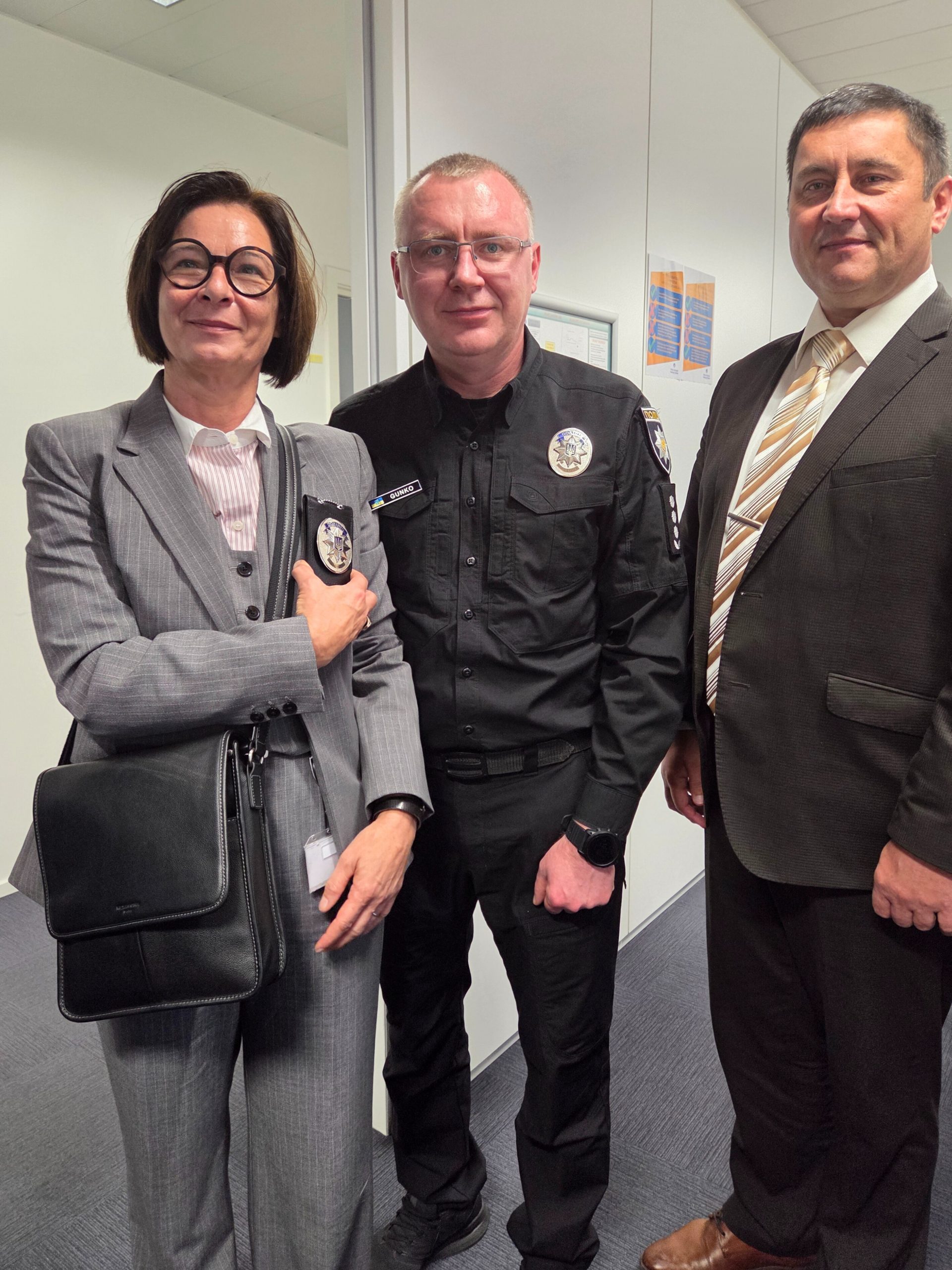Ukraine’s Fight against Human Trafficking through European Cooperation
October 17, 2025
Human trafficking remains one of the EU’s priority crime areas. For Ukraine, whose citizens face heightened risks due to displacement and economic vulnerability caused by the war, learning from European models of prevention, investigation and victim protection is crucial.
To reinforce Ukraine’s capacity to counter trafficking in human beings (THB), last week the European Union Advisory Mission (EUAM) Ukraine organised a study visit to Europol and Eurojust in The Hague and to Belgian law enforcement institutions in Brussels. The visit brought together Ukrainian investigators and prosecutors to exchange best practices and strengthen cooperation with their European counterparts.
Over three days, the Ukrainian participants explored the full cycle of how the EU tackles human trafficking – from victim identification to investigation and prosecution. Meetings at Europol and Eurojust provided insights into the use of joint investigation teams (JITs), data exchange, and analytical tools that enhance cross-border coordination.
In Brussels, the Belgian Federal Police and Federal Prosecutor’s Office presented their integrated, victim-centred model for combating trafficking. Participants observed how operational coordination between airport police, customs, and migration authorities allows early detection of trafficking attempts, while digital analysis tools such as passenger-name record (PNR) data help uncover hidden networks.
“The participants had the opportunity to discover the full scope of the Belgian integrated approach to combating trafficking in human beings – from prevention and victim protection to investigation and prosecution,” said Joël Detilloux, EUAM Senior Adviser on Criminal Investigations.
The visit deepened the participants’ understanding of how intelligence, judicial coordination and technology can be effectively combined to dismantle trafficking networks. It also created valuable professional links between Ukrainian and EU law enforcement officers, paving the way for closer operational cooperation.
Reflecting on the visit, Police Colonel Yurii Hanushchak, Head of the 3rd Directorate (Coordination of Activities) of the Migration Police Department, noted that the experience provided a clear view of how European countries address emerging trafficking trends and how Ukraine can apply this knowledge at home.
“It was encouraging to hear positive feedback about Ukraine’s active cooperation, particularly from the National Police,” he said. “Our discussions with Belgian colleagues gave us an in-depth understanding of their efforts to combat trafficking and migrant smuggling. Learning how Belgium has implemented several EU directives in these areas will help us when aligning Ukrainian legislation with EU law.”
Participants agreed that the study visit provided tangible tools for immediate use in Ukraine’s law enforcement practice – particularly in improving inter-agency coordination and ensuring a more victim-oriented approach.
EUAM Ukraine will continue assisting national law enforcement and prosecutorial authorities in developing investigative and analytical capacities, supporting legislative alignment with EU standards, and promoting the protection of victims. Through these efforts, the Mission remains a bridge between Ukraine and the European Union in the fight against organised crime and human trafficking.


